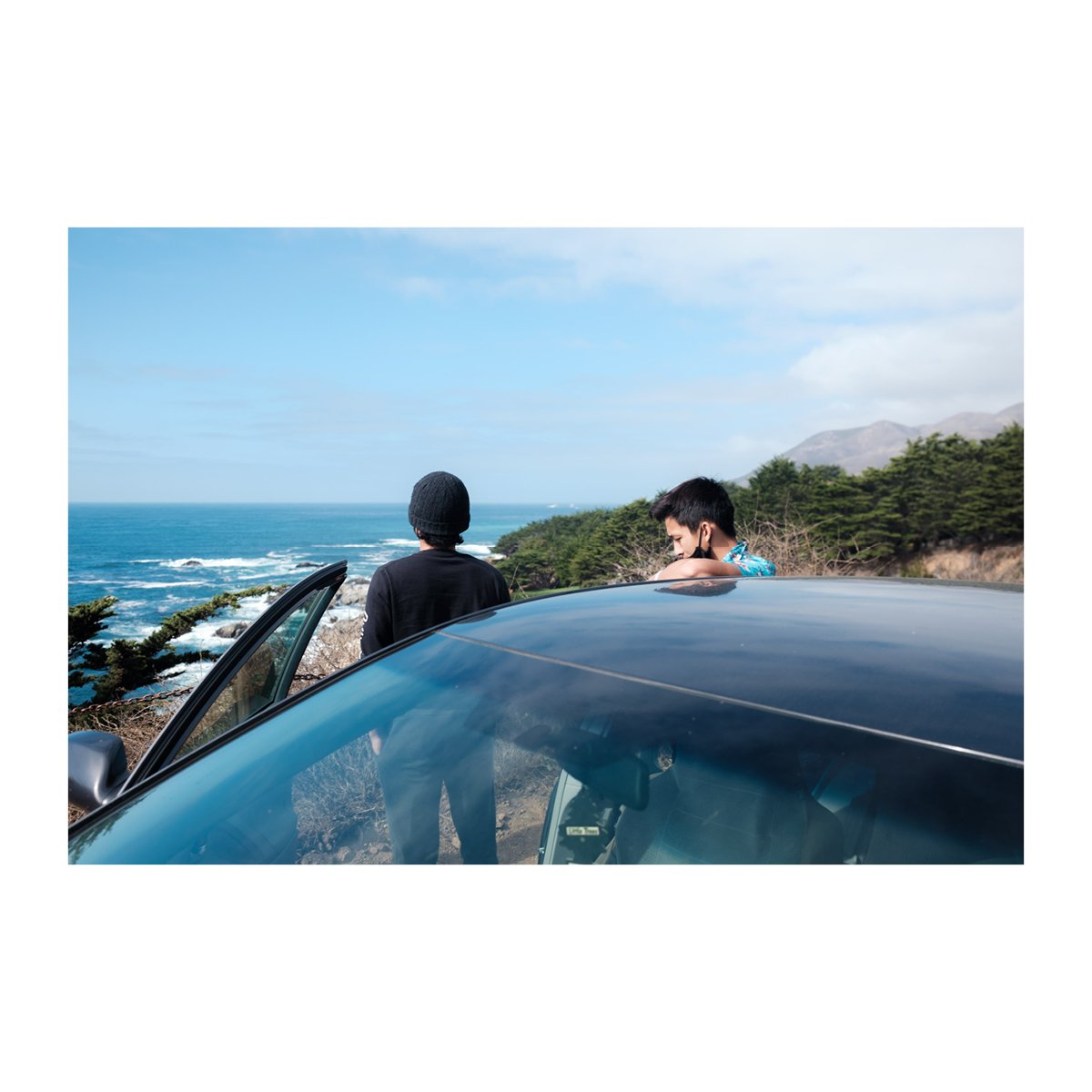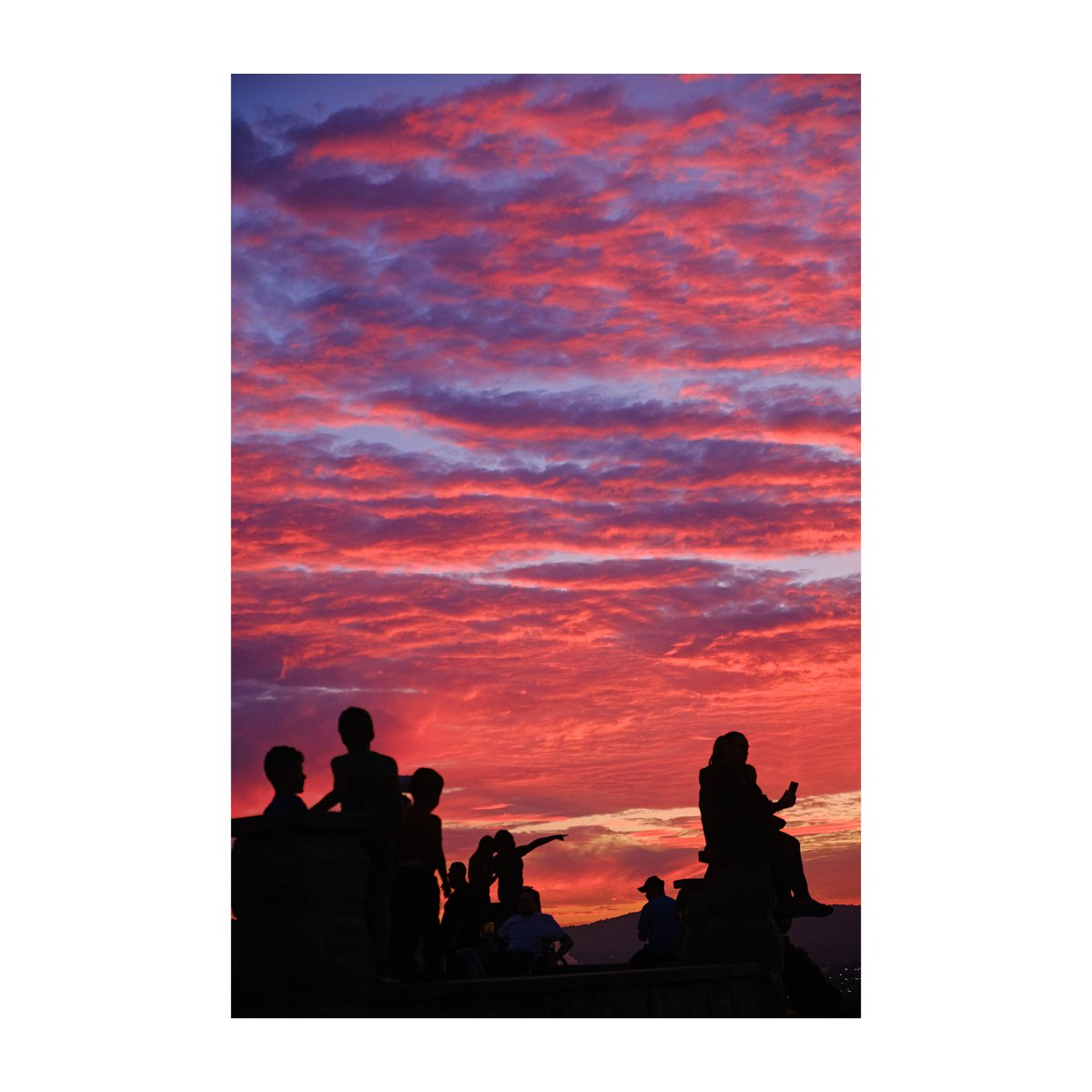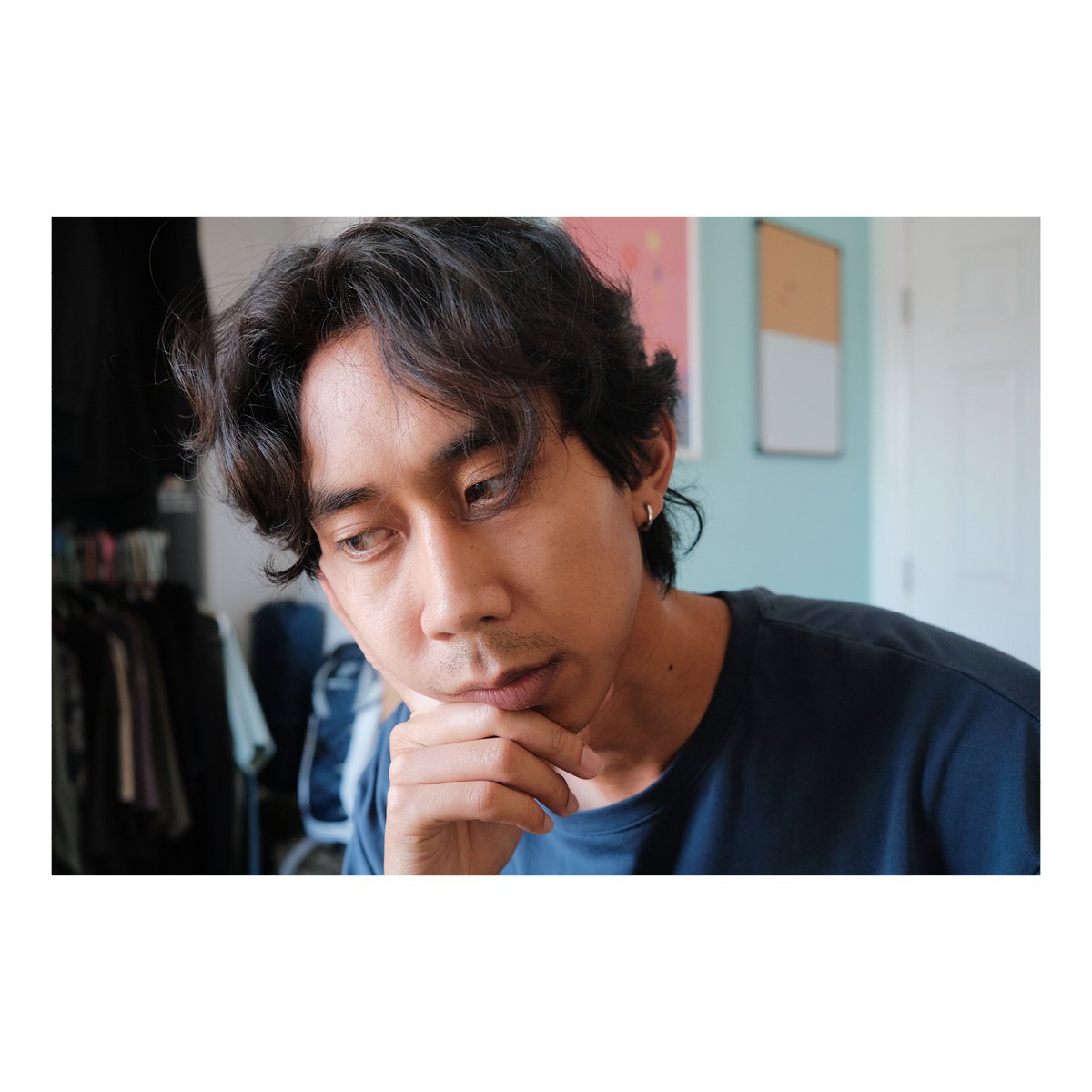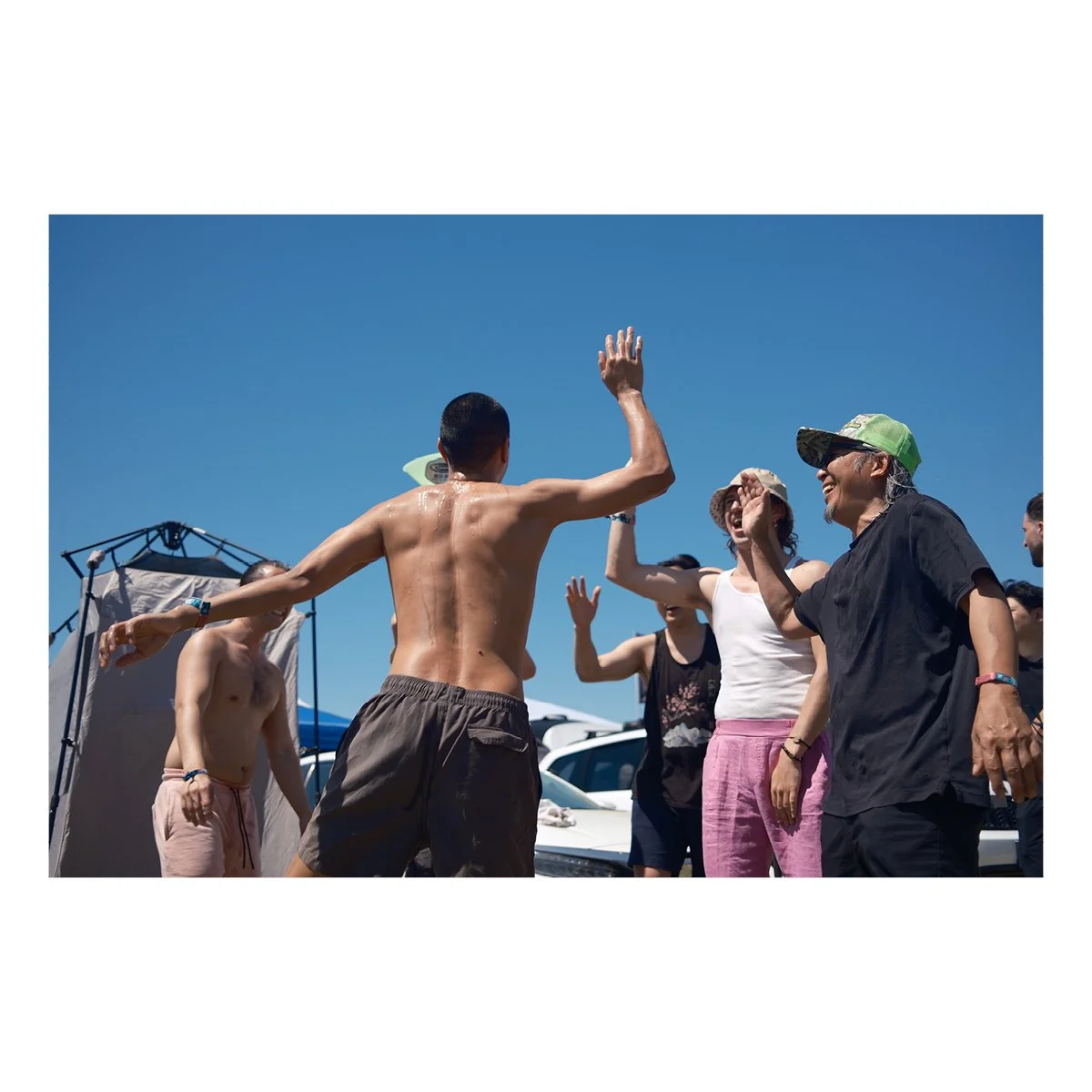Why I Stopped Taking "Good" Photos (The "Good Photo" Paradox)
Today we’re going to talk about something that took me way too long to realize in my photography journey.
I believe if you can understand this and apply it to your work, photography will make sense - and you will get better.
Unlike many of my other tips, it’s not a practical actionable thing for you to do.
It’s a way of thinking, a philosophy, and a way of understanding how things work.
You see, when I first began photography, I just snapped away.
I followed what appealed to me and took pictures of any and everything.
Some of it was decent, a lot of it was garbage…
And somewhere along the way, I forgot something important.
In the middle of my photography journey I became fixated on taking “good photos”.
“What makes for a good photo?”
“Can that even be defined and how would I go about it?”
I started asking deeper questions and tried to get into the nooks and crannies of the math behind photography.
And there was a tug of war - part of me said, “F*ck it, just take pictures.”
The other part sought to be intentional and structured with how I took my photos.
As time passed, I juggled these two ideas and began to understand more and more about photography.
You see, learning frameworks, having go-tos, understanding composition is all important, yes.
But it doesn’t matter nearly as much as you think it would.
Let me explain.
We’ve Got It Backwards
One of the biggest things people misunderstand about photography is the idea of “good photos”.
They think that if they focused on and tried to get good photos, they would.
Now you might be thinking: “Well duh Andre, of course I want to take good photos. What’s wrong with that?”
Let me ask you a few questions to help you understand this:
What do we actually do when we take photos?
What is photography?
Is it pressing the shutter?
Is it getting good colors?
Is it creating fancy compositions?
Is it even “taking good photos”?
Define “good photo”.
Is it the one with proper exposure?
Is it the one with good colors?
Is it the one with foreground, middle ground, background?
The list goes on.
You see, none of it makes sense.
This is what I call: The “Good Photo” Paradox.
Because there’s no one thing you can pigeonhole all of photography into and say “If it has x specific thing, it’s a good photo.”
You could argue good photos means “good exposure”, but there are many cases where underexposed or overexposed images make more sense for that specific image.
A darker image can make things seem more moody while a brighter image can add a lightness to your photo.
So the definition of “good exposure” depends as well.
And if we try to define it too strictly, we’ll just open another endless loop like trying to define what a “good photo” is.
When in reality, it’s situational and it all depends.
So understanding this made me realize: we’ve got it all backwards.
Photography isn’t about pressing the shutter, getting good colors, creating neat compositions, getting proper exposure, etc.
Photography is simply about capturing the moment.
That’s it.
Capturing the moment.
It’s about looking out into the world as an observer, seeing different elements colliding and interacting with one another, and then capturing brief, finite, and rare circumstances as they are, as you saw it or as you see fit.
And if you can do this properly, you will get a good photo as a result.
But what makes this photo “good” is different than what makes another photo good.
So what am I trying to get you to understand here?
The point is that we don’t get good photos by trying to get good photos.
And we don’t get good photos simply by following photography rules, compositions you heard about online, and any of that other stuff.
That can help us improve our photos in general, but it has us focused on the wrong thing.
That being: that there is some comprehensive way we should be taking photos - when we should just be focused on capturing the moment.
So the idea of a “good photo” is elusive.
It’s an illusion.
It doesn’t mean anything.
And there are infinite variants of “good photos” across the stream of moments that are happening every single second.
So don’t try to take a “good photo”.
Because what a “good photo” is can’t be defined beforehand, only recognized in retrospect.
On the other hand, capturing the moment is something that’s available to all of us.
In every circumstance there is a thing happening.
It may be two folks kissing at the peak of a song during a festival.
Or the moment of victory, cheer, and applause after dunking one’s head in an ice bath and downing a beer.
No matter what it is, there is always a moment to be captured.
And trying to capture moments instead of “taking good photos” is how we want to approach photography.
Because the thing you’ll realize is that:
capturing the moment is possible - taking a “good photo” is confusing
when you focus on capturing the moment, “good photos” happen
Meaning that good photos are simply a byproduct of capturing the moment properly.
It’s something that people will look at the shot later and say:
“That’s a good photo.”
So instead of focusing on taking good photos, focus on capturing the moment, and good photos will result.
Does that make sense?
Let me give you an example that might help.
The Story of…This Channel
I tried to think of a good story for you guys that wasn’t about me but I think this one makes the most sense.
When building and running my YouTube channel, I, like many other creators, wanted to make videos that got views.
I wanted to make money off of what I created.
I wanted to share and develop my thoughts about stuff.
And I wanted to build the life I wanted to live, and be more intentional about how I did things - instead of just floating around in the world and watching the time go by.
And in this effort, I struggled.
Making YouTube videos wasn’t all it was cracked out to be, advertisers pay you pennies, and it’s hard to watch others progress in their careers while you felt like a failure.
The culmination of that, overworking myself, not being smart with my productivity, and not feeling the progress of my efforts resulted in me burning out a few years ago.
From there, I took an indefinite leave from making consistent content, save for a video here and there.
And I spent nearly a year trying to figure everything out.
And it wasn’t easy.
But in that process, I learned how the world worked.
At least a little bit.
You see, in my efforts to grow this channel, build my career, and get somewhere in life, I forgot what mattered the most.
I thought that by trying to get views I would get views.
I thought that by pushing towards my goals, I’d be able to achieve them.
I thought that by trying to take good photos, I would get good photos.
But I had it all backwards.
Fast forwards roughly one year later after burning out, I revamped the channel.
I felt like I understood myself and the world a bit better and I started working out the kinks to make videos again.
And some videos were good, others were a mess, but we eventually got here - where we are now.
By the time this gets out we’ll be around 12,000 subscribers on YouTube.
Which is nearly double what I had just a year ago.
Which is insane.
And I’m truly grateful to you all who’ve been here since the beginning as well as to everyone who’s found me recently.
But the point is, growth started happening when I stopped trying.
Instead of trying to get views, do what everyone else was doing, I focused on the only thing I could focus on - making videos.
Improving what I was doing and how I was doing it with each and every iteration.
And the growth of this channel came as a byproduct of making better stuff.
But I wasn’t chasing anything - I just made stuff.
The same goes for photography.
In my efforts to try and take good photos, I found myself taking worse photos.
In that effort to try and be a better photographer, I found myself forgetting why I took photos to begin with.
But when I flipped everything over and just focused on capturing the moment, great photos came.
Photography became easier, more effortless, and I was less stressed about it.
I wasn’t doing anything fancy, I just wanted to capture each moment properly.
So it sounds extremely counter-intuitive, and that’s why it’s difficult to apply.
But if you get this and can apply it to your photography and your life, I think good results can occur.
So lets get to that - some practical ways to apply this.
Practical Ways to Capture the Moment
I know I mentioned earlier that this was more of a philosophy, not a practical actionable thing today, but lets do it anyways.
There are several ways you can “capture the moment”.
The first would be to observe.
A lot of people are stuck in their own worlds.
They are focused on themselves, what they’re going to do, what they’re thinking about, what they need.
That is not the best place to be if you want to capture the moment.
Instead, you want to pay attention to others.
Put yourself in their shoes, what they’re feeling, what they’re doing.
Pay attention to the motion of people around you, where they’re going.
If you can do this, you’ll be able to move onto the next step: anticipation.
When you’ve got a grasp on someone else’s actions, movements, and thoughts, it becomes easier to know what they’re gonna do.
And when you know what they’re gonna do, you know what’s gonna happen next.
It’s like predicting the future.
It could be someone pointing a certain direction, directing their friends.
Or someone reaching out for a high five.
You know what’s gonna happen next.
And then, when the moment happens, you can take the photo accordingly.
Next, something me and many other photographers struggle with: patience.
In photography, there’s a moment to be decisive and there’s a moment to be patient.
If you take the photo too early you can capture undeveloped moments that are half of what they could be.
If you’re not decisive and wait too long, you miss the moment and capture it after it’s happened.
So timing is key.
And I think patience is harder for most people than being trigger happy.
So remind yourself to let it happen.
Let the moment happen on its own accord.
That’s what will get you the most natural and better image.
And when the time comes, be decisive.
Final way to capture the moment - ask yourself a simple question:
“If I could summarize everything that is happening right now into one picture, what would it look like?”
Take a moment to step outside of your shoes and look at the world from above.
What is going on?
What is happening?
What is everyone feeling right now?
What is today?
And then, try to photograph the essence of that.
It could be a hot summer beach scene with people soaking in the sun - or the ocean.
It could be a calm blue day at the lake where the energy is to get away from the city, and escape normal life.
Capturing the essence can be different than capturing the moment, (more on this in a different video) but it has that same effect of making your photos better.
So 4 things to think about: observe, anticipate, be patient, and find the essence.
And finally, if you want to bottle up everything we learned today into one phrase, remember this:
Photography isn’t about taking good pictures - it’s about capturing the moment.
Capture the moment, everything follows.
Because a good picture is simply a byproduct of capturing the moment.
Remember this and you’re golden.
So anyways, if you wanna learn more and get up to speed with photography, check out “Photography Essentials”, my new course - it’s free.
Also check out my latest photography zine “The Sinking Sun”.
You can grab a free 4x6 print while you’re at it.
Thanks for reading, have a wonderful day.












